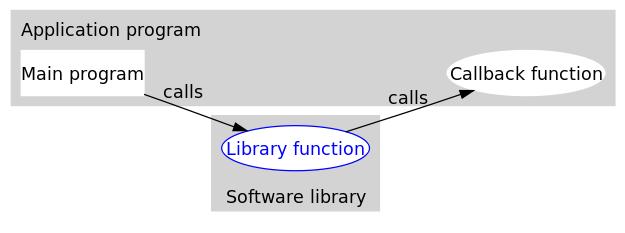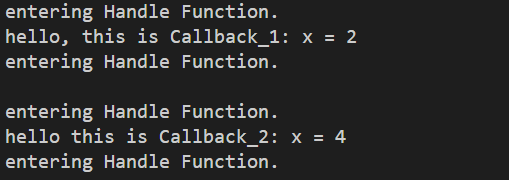回调函数(callback function)
是什么
回调函数是一种特殊的函数,它不是在程序中直接调用的,而是由程序在特定事件发生时进行调用的。回调函数通常作为参数传递给其他函数,而这些函数在执行时会将回调函数作为其内部的一部分来调用。

为什么
- 解耦.
- 回调函数的好处在于它们可以让程序更加模块化和可扩展。
怎么样
例:
#include<iostream>
using namespace std;
int Callback_1(int x) // Callback Function 1
{
cout<<"hello, this is Callback_1: x = "<<x<<endl;
return 0;
}
int Callback_2(int x) // Callback Function 2
{
cout<<"hello this is Callback_2: x = "<<x<<endl;
return 0;
}
int Handle(int y, int (*Callback)(int)) //可以将函数当作参数传递, 增加一个参数y来灵活操作
{
cout<<"entering Handle Function."<<endl;
Callback(y); //调用回调函数
cout<<"entering Handle Function."<<endl<<endl;
return 0;
}
int main(int argc, char const *argv[]) {
int a = 2;
int b = 4;
Handle(a, Callback_1); //将函数名作为参数传递
Handle(b, Callback_2);
return 0;
}

例:
定义了一个函数指针类型
typedef REAL(*GetVertexParamOnEdge)(void*, int, int);


 浙公网安备 33010602011771号
浙公网安备 33010602011771号